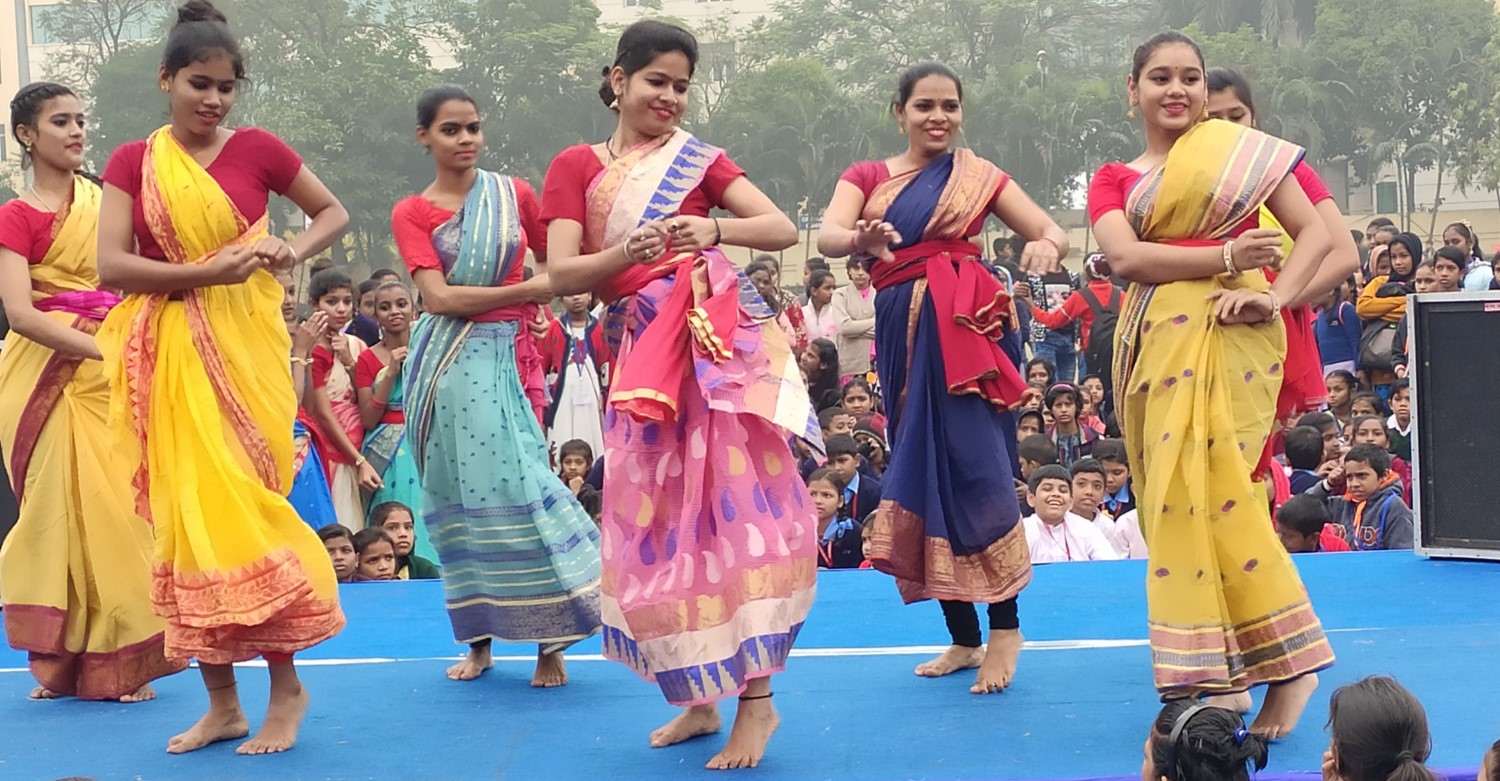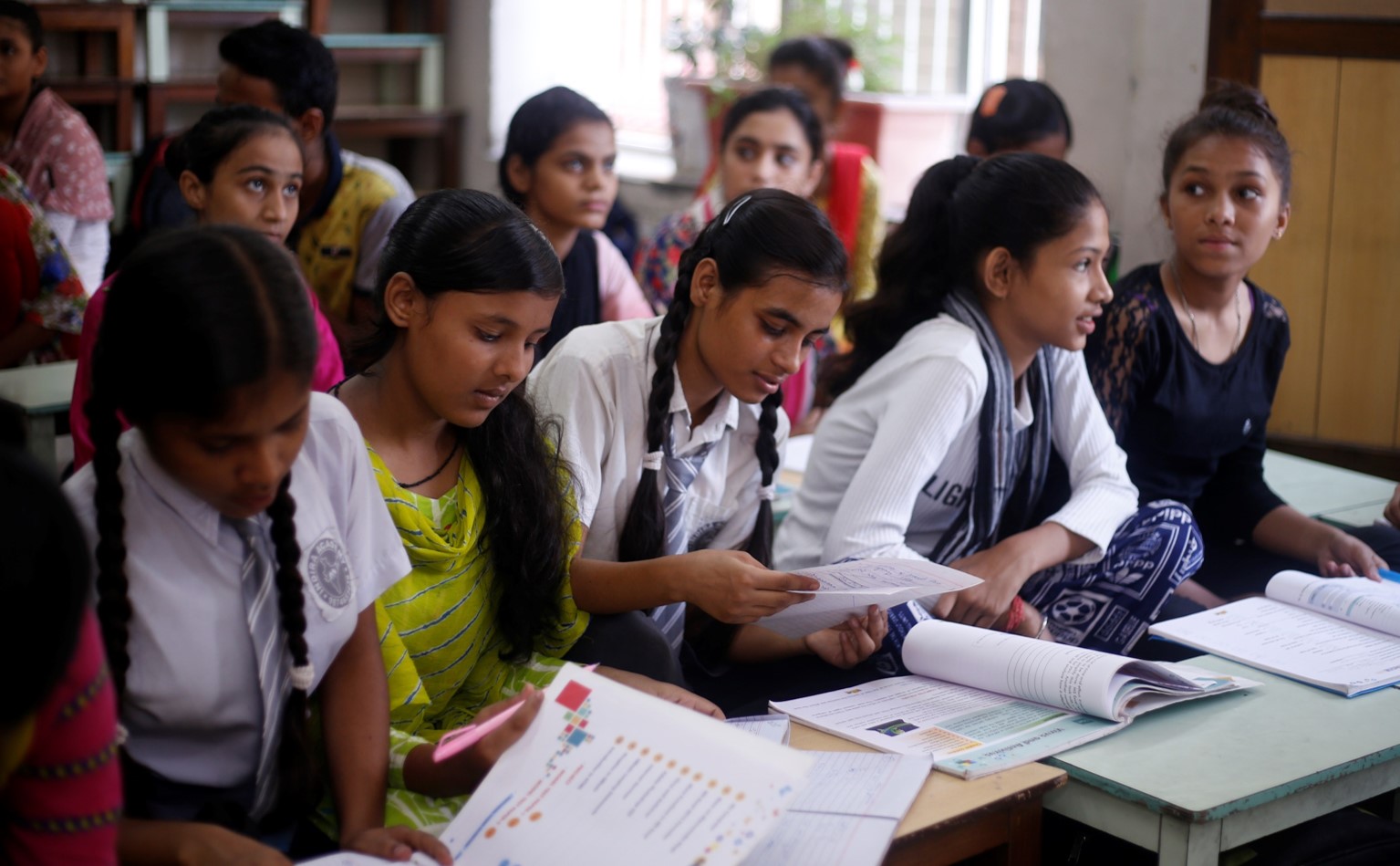
Mission
The mission of Ek Tara is to educate, engage, and empower girls and women from marginalized, urban, low-income settlements to become agents of change.
Life Challenges of the Women Served
 Girls in the low-income settlements of East India are relegated to the bottom of society with nearly no rights or choices. They are from oppressed, marginalized communities, with oppression coming from within the family, the community, and the larger society. The parents of these girls lack financial resources or stability, working in the unorganized sector as daily wage earners, laborers, etc. Some typical challenges the community faces include early child marriage, poor health and hygiene conditions, class discrimination, and general lack of safety. Deep-rooted patriarchal mindsets and preferential treatment of boys inhibit the growth, development, and decision-making ability or opportunity of women and girls in the area. There is a lack of quality, accessible schools, as well as a lack of access to proper nutrition and safe, clean spaces.
Girls in the low-income settlements of East India are relegated to the bottom of society with nearly no rights or choices. They are from oppressed, marginalized communities, with oppression coming from within the family, the community, and the larger society. The parents of these girls lack financial resources or stability, working in the unorganized sector as daily wage earners, laborers, etc. Some typical challenges the community faces include early child marriage, poor health and hygiene conditions, class discrimination, and general lack of safety. Deep-rooted patriarchal mindsets and preferential treatment of boys inhibit the growth, development, and decision-making ability or opportunity of women and girls in the area. There is a lack of quality, accessible schools, as well as a lack of access to proper nutrition and safe, clean spaces.
India has more than 35 million children without access to school, of which 53 percent are girls. More than 1.6 million girls ages 11 – 14 were estimated to be out of school before the pandemic and this is likely to increase significantly due to the impact of the pandemic. Girls in this situation are at risk of early marriage, early pregnancy, trafficking, violence, and poverty. India also has a high drop-out rate for girls – as high as 57 percent in some areas.
Ek Tara’s current operational areas in Topsia and Tiljala in Kolkata, India have close to 500,000 residents, of which 20 percent are children. Most are without access to good schools or support systems to help them stay in school and complete their education. Ek Tara not only addresses the gap in access to schools but proactively works on changing mindsets around the role of girls and women in society.
The Project
Ek Tara’s School Support Project for Adolescent Girls helps children from low-income settlements complete their secondary level of education so they can enroll in college or vocational programs and ultimately get vocational jobs. This helps ensure a steady flow of income, which is directly linked to the position one holds in the family and the broader community. Through exposure to activities at Ek Tara, girls also acquire skills in critical thinking, effective communication, and decision-making, thereby reducing their reliance on male members of the household. Girls who gain an education and these intangible skills move toward greater gender equality and become change agents in their families and communities.
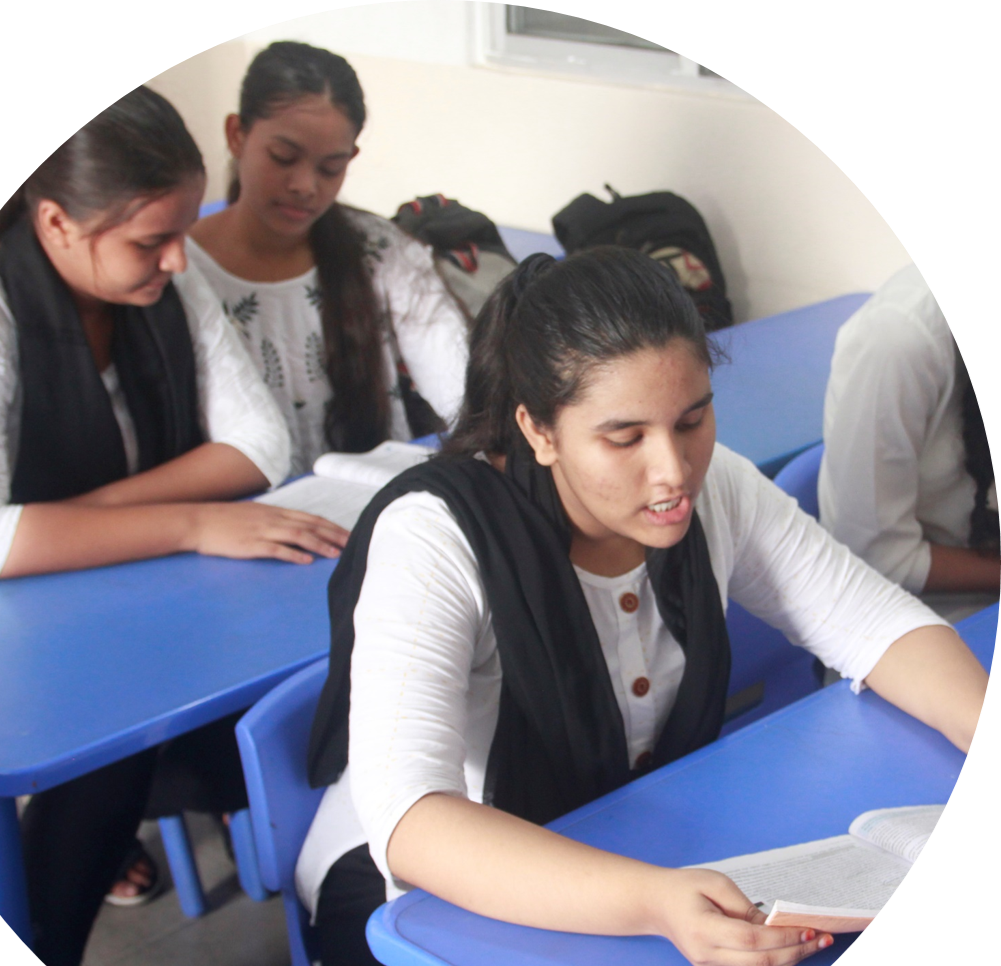 Ek Tara ensures each child is exposed to new areas of learning and receives individual attention. For instance, there are collaborative projects around the world on peer mentorship, climate change advocacy, girls’ rights, and digital literacy. Children gain access to high quality teachers as well as learning resources for 21st Century skill building. In addition, their holistic development needs are met through regular classes on reading, art, music, martial arts, sports, and other co-curricular activities –all of which are run by Ek Tara in its community center or through partner organizations. Trained SEL (Social Emotional Learning) teachers pay attention to the children’s learning needs and overall wellbeing.
Ek Tara ensures each child is exposed to new areas of learning and receives individual attention. For instance, there are collaborative projects around the world on peer mentorship, climate change advocacy, girls’ rights, and digital literacy. Children gain access to high quality teachers as well as learning resources for 21st Century skill building. In addition, their holistic development needs are met through regular classes on reading, art, music, martial arts, sports, and other co-curricular activities –all of which are run by Ek Tara in its community center or through partner organizations. Trained SEL (Social Emotional Learning) teachers pay attention to the children’s learning needs and overall wellbeing.
A total of 80 children will be direct beneficiaries of the Together Women Rise project grant. Indirect beneficiaries include the families of the children enrolled, including 750 people from Kolkata’s low-income settlements. Upon completion of school, these children and their families will have means to lead a better quality of life. The expectation is that girls enrolled in this project will attend school regularly, complete secondary school, and be ready for a job linked to vocational training. In addition, the expectation is that these girls will also have good health indicators and parents who support them. Economic independence gained from employment enables these girls and their families to access quality services, which leads to better nutrition, hygiene, and health. Specific goals include:
- 100 percent will be promoted to the next class by the end of the year
- 80 percent will have strong attendance at school
- 100 percent will secure over 50 percent aggregate percentage for the year
- 20 percent will be among the top 10 scoring children in their class
- 100 percent will participate in at least two co-curricular activities
- 100 percent will participate in at least one intra-school program
- 100 percent will attend one external event
- 100 percent will complete at least class 12 and 80 percent will pursue higher education
- 50 percent will develop their leadership skills in the community and will understand the importance of educating others.
- 100 percent of the mothers will enroll in trainings for better parenting.
Major activities under the project include monitoring of regular attendance in school, academic performance, and non-academic engagement including health, hygiene, and meals. Ek Tara will enroll girls in leading schools based on their academic competencies and chart out a growth plan for them. This will include access to co-curricular activities, leadership training, participation in various events and activities that expand their knowledge and worldview and help them become more informed citizens, as well as parental participation, and capacity building.
Partnerships are an integral part of program delivery at Ek Tara, including working with five partner schools where the girls will be enrolled for their formal education. In addition, parents, other community members, and local civic bodies will also play an important role in the success of the project. For events and special activities, partnerships with individuals and organizations around the world will be formed.
All girls in this project were enrolled in Ek Tara’s Early Childhood Learning Center at the age of 3 after a rigorous three-month admission process to determine financial status as well as the family’s willingness to support their girls’ education. Girls completing primary education under Ek Tara’s care are enrolled in schools depending on their academic ability and parent participation. Ek Tara has multiple school partners affiliated with three different school certification boards. This helps each child find her right fit in completing school education.
Direct Impact: 80; Indirect Impact: 750
UN Sustainable Development Goals
![]()
![]()
![]()
![]()
![]()
Questions for Discussion

- How do you think this project can bolster gender equality in the community and beyond?
- How do you think the value placed on keeping girls in school, along with associated parent capacity building, can make a generational impact on participating families?
- Girls can get connected to Ek Tara as young as 3 years old. Do you think this approach evens the playing field for them more than intervening when they are adolescents? Why or why not?
How the Grant Will be Used
Together Women Rise’s grant of $49,198 will help fund the following:
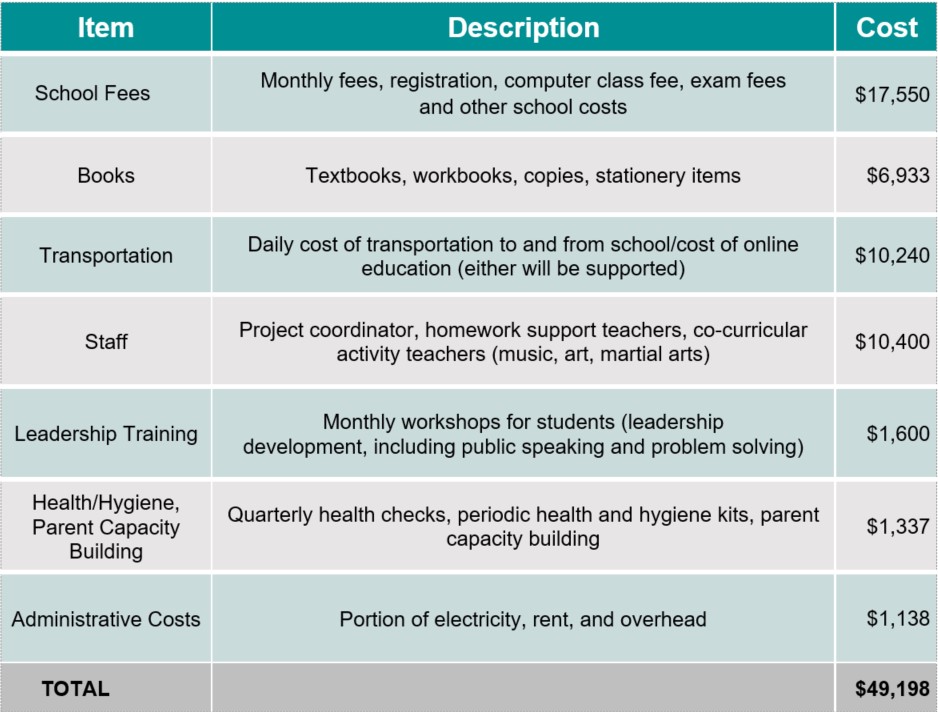
Why We Love This Project/Organization
Ek Tara’s program interventions begin early and include social skills, academic skills, sports, creative arts, health and wellbeing, and parental engagement. These highly successful interventions are holistic, with very impressive outcomes. They are designed to build a supportive community invested in the long-term academic goals for girls, with follow-through on tertiary level education and job attainment.
Evidence of Success
Ek Tara has worked with nearly 1,000 families and impacted the lives of more than 5,000 individuals through direct and indirect programs. As a result of its work on the ground, Ek Tara has developed a deep understanding of the complex problems stemming from intergenerational poverty which have been further entrenched by the pandemic, leading to severe learning loss. Out of the 1,300 women and children Ek Tara currently works with:
- 950 children are successfully enrolled in learning projects that will enable them to complete secondary school and move into higher secondary and college education
- 150 women are employed and earn salaries at par or higher than their male counterparts
- more than 200 school dropouts are engaged through outreach programs to prepare them to return to formal schooling.
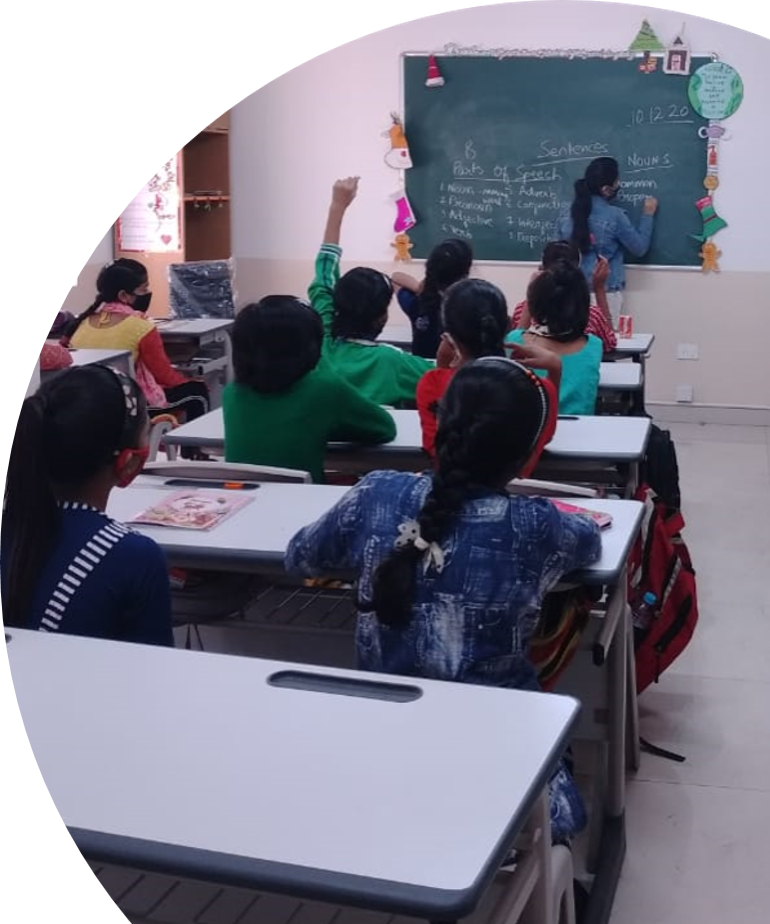 Ek Tara has also started publishing books on important social/ cultural themes for first generation learners so that they are able to look at global issues in their context. Through its first book, Ek Tara reached out to more than 40,000 children across India, all from economically disadvantaged groups.
Ek Tara has also started publishing books on important social/ cultural themes for first generation learners so that they are able to look at global issues in their context. Through its first book, Ek Tara reached out to more than 40,000 children across India, all from economically disadvantaged groups.
Over the last decade, 98 percent of girls have graduated from Ek Tara projects ranging from primary to secondary levels of education. Girls in the early childhood learning program have developed a strong academic foundation leading them to secure positions in formal schools across the city. Marked improvements have been noted in children’s Foundational Literacy and Numeracy (FLN) parameters and in overall classroom performance. Parent attitudes about girls’ education have also changed. Every year, Ek Tara has seen an increase of 250 – 300 percent in the number of applications for admission.
Voices of the Girls
From Ek Tara students:
“I want to be a teacher when I grow up. My favorite subject is English.”
“The teachers are wonderful and I have a lot of friends here. I have learned a lot here at Ek Tara.”
“I enjoy library classes. I love the books in there because they are so colorful.”
“Today I completed my work on time because I wanted to help my friends with their work.”
“Me and my friends in art class will be taking part in the annual at exhibition in the coming year. I enjoy coming to Ek Tara.”
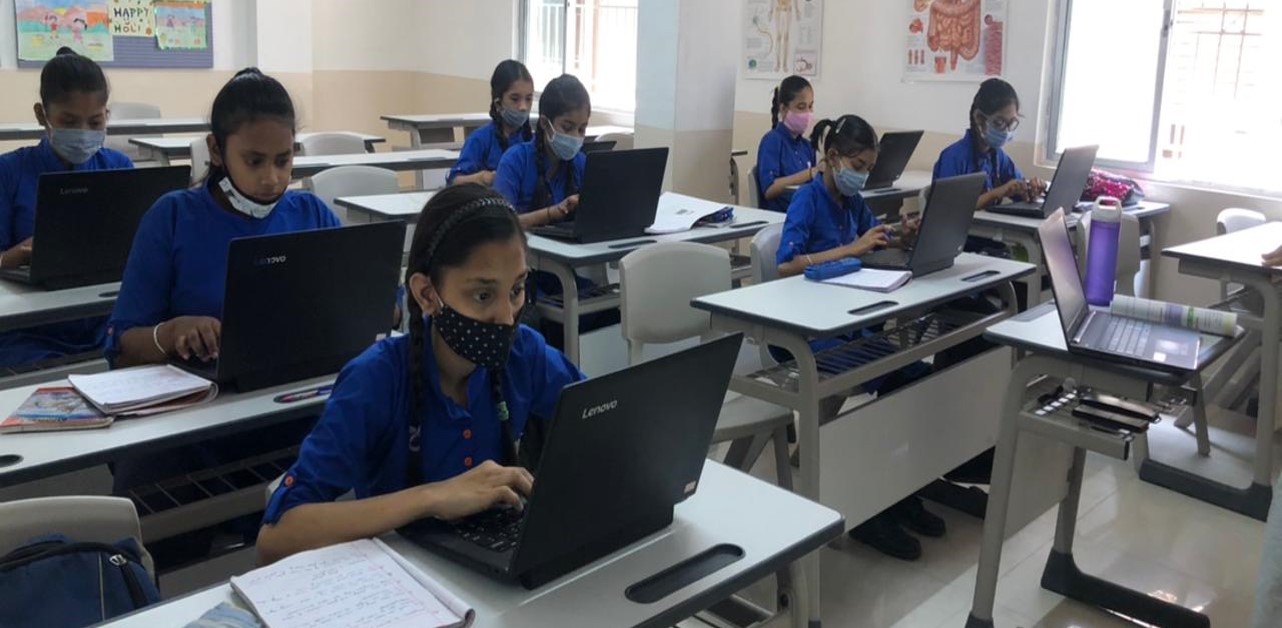
About the Organization
Ek Tara was founded in 2011 by Vinita Saraf and Namrata Sureka. The organization has reached more than 40,000 children in low-income settlements in partnership with approximately 70 organizations, schools, and individuals across the country.
Women and girls ages 3 – 30 from marginalized low-income settlements in Kolkata benefit directly from Ek Tara’s programs. They come from families that migrated from neighboring states to find employment, but are currently mostly unemployed. These families are engaged as daily wagers, live in bustees (densely populated low-income housing) with shared toilets, and on an average make an income of about Rs 1,000 to 1,500 per week ($14 to $20) to support a family of four to five members.
Ek Tara provides academic and non-academic programs for first generation students ages 3 – 18 from the largest and poorest low-income settlement of East India. Services include core academic interventions and support along with a host of development opportunities such as arts, crafts, sports, events and activities, library and more. Children enrolled in the projects are part of an all-encompassing program that includes parental engagement, daily meals, and access to physical and mental health support. Programs are delivered through two 30,000 square foot facilities – the Ek Tara Community Centre and Ek Tara Learning Centre located within the area of intervention.
In 2020, during the first outbreak of the pandemic, Ek Tara successfully pivoted to meet the welfare needs of the communities it works in and distributed food and other essentials to more than 10,000 people across the city. During the second wave, Ek Tara continued to provide meals to more than 5,000 individuals.
Where They Work


With a population of almost 1.4 billion, India is the second most populated country on Earth and the largest South Asian economy, comprising a third of Asia and over 17 percent of humanity. English is the language of choice for political and commercial endeavors, although there are 22 other recognized languages, including Hindi, which is spoken by 44 percent of the population. Unfortunately, 360 million Indians – more than every US man, woman, and child – live in squalid conditions and are among the most impoverished in the world.
India’s low-income settlements are home to millions, yet a third are not even recognized by the government. Families crowd together in makeshift structures, drink scant and contaminated water, scrounge through waste dumps, and typically share unhygienic communal bathrooms that lack sewage systems. Twenty percent live far below the poverty line, often as domestic workers, daily wager laborers, rickshaw pullers, and other low-paying jobs. Discrimination against women and girls is rampant, corruption is entrenched, and there is an unequal distribution of quality education.
Ek Tara works predominantly in three municipal wards in Kolkata, West Bengal. There are thousands of low-income settlements in Kolkata, comprising the largest in Eastern India. Although it is rife with problems and inhospitable living conditions, Kolkata is the second largest city in India and it is the primary business, commercial, and financial hub of East India. The broader area of West Bengal is the largest producer of rice in India, a major producer of fish, and the second largest tea-producing state in India. This region also has many natural resources and offers good connectivity to other areas. Although it is home to historic architecture and famed art galleries, it is also the seat of pronounced poverty and thousands of sex workers trapped in a life of abuse and slavery.
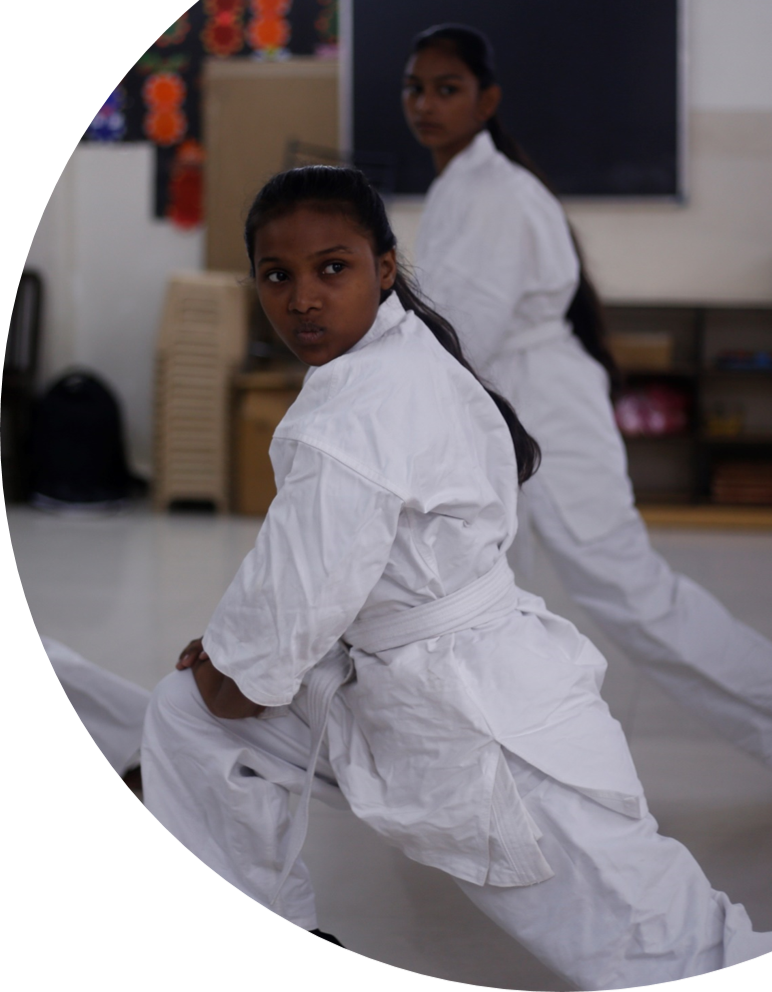 A closer look at how marginalized communities may need support to stretch gender/social norms to move towards valuing girls and promoting their success
A closer look at how marginalized communities may need support to stretch gender/social norms to move towards valuing girls and promoting their success
All the grantee partners supported by RISE play a role in advancing gender equality. Projects that support parents are critical, especially mothers. Communities with dire conditions like the Kolkata low-income settlements need long-term holistic interventions that start early – like Ek Tara’s programs. By reaching these families early, the hope is that the cycle of poverty that pervades these areas will be broken and that girls will gain a voice equal to their male counterparts.
One key element in this process is listening to women and girls. Although that sounds basic, in many male-dominated communities the opinions, thoughts, and concerns of girls and women are ignored. Only when women and girls are heard can strategies be developed to alleviate their suffering and ultimately increase their value in society. That’s why it’s so imperative that RISE grantee partners have a role in creating the programs we support.
Support comes in many forms, but some of the most enduring types are familiar to RISE: providing girls access to education and after-school programs, creating job opportunities that raise living standards for individuals and entire families, reducing gender-based violence and enhancing overall health and safety.
Source Materials
https://www.smilefoundationindia.org/kolkata-slums.html#:~:text=Presently%2C%20there%20are%202011%20registered,pullers%2C%20hawkers%20and%20security%20guards.
https://www.cia.gov/the-world-factbook/countries/india/summaries/#people-and-society
https://topyaps.com/n-heartbreaking-facts-about-life-in-indian-slums/
https://www.ibef.org/states/west-bengal.aspx
https://www.brookings.edu/blog/education-plus-development/2020/05/15/5-actions-to-help-bring-the-most-marginalized-girls-back-to-school-after-covid-19/
https://www.theguardian.com/global-development-professionals-network/2016/mar/14/gender-equality-women-girls-rights-education-empowerment-politics
